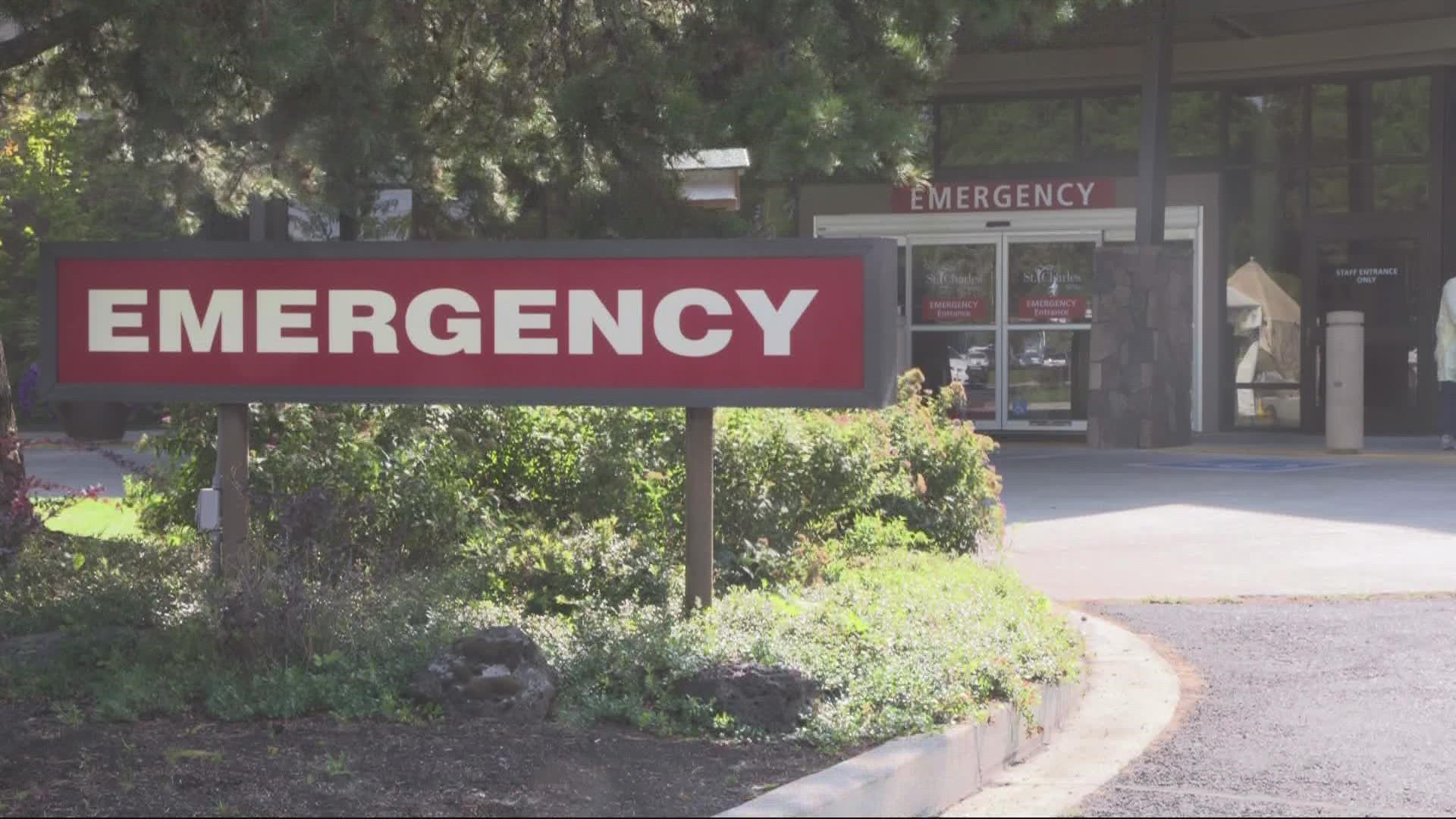PORTLAND, Oregon — Many hospitals in the Pacific Northwest are once again at or above capacity. As of Monday, nearly every hospital bed in the Portland metro area was spoken for.
Health care officials said rising COVID-19 cases are once again a factor, but this summer there are many other challenges, including staffing.
“We know that many levels of staff have made decisions as a result of the COVID pandemic to cut back hours, to change professions, to sometimes leave health care entirely,” said Dr. Renee Edwards, chief medical officer at Oregon Health & Science University (OHSU). “Our hospital is completely full.”
Like so many hospitals and health care providers, OHSU is actively recruiting for nurses and other positions. At the same time, they're competing against the growing national demand for traveling nurses and contracted labor.
It's a challenge that's not just impacting hospitals but long-term care facilities too. And therein lies another challenge; some patients are using hospital beds they no longer need while waiting for a transfer to long-term care facilities.
“When we can't move our patients from the hospital environments of care into those post-acute environments where patients need ongoing care, then it does create a backlog in the system,” said Edwards.
On Monday, there were 58 non-intensive care unit hospital beds available in the Portland metro area, or 3% of capacity. There were 20 ICU beds available, or 6%, according to the Oregon Health Authority.
Dwindling hospital capacity is not just Oregon's problem. Multiple Washington hospitals noted that they too are over capacity and understaffed. That includes Harborview Medical Center in Seattle.
“We have not been under this level of stress at any point during the pandemic,” said Sommer Kleweno Walley with Harborview Medical Center. “This is unprecedented at this point."
“Unfortunately, we have returned to the same level and in some cases worse level of both challenge and strain in our hospitals that we experienced during those periods of those specific surges related to those variants," added Dr. Steve Mitchell with the Washington Medical Coordination Center.
It all comes as doctors contend with the BA.5 and BA.4 variants, which account for most new cases and are believed to resist both antibodies and vaccine protections.
“When both states are at capacity, it creates an extreme situation for the Pacific Northwest," said Edwards.
Edwards pointed out that emergency rooms are also extremely busy, especially during the summer months. It's why hospitals across the region are asking people to avoid using them except for true emergencies. Instead, they encourage visits to urgent care providers or primary care physicians whenever possible.
Hospital officials also advise people to stay on top of preventive health care, get regular check-ups and don't ignore health concerns.
“Many patients who delayed seeing a doctor during COVID now need more intense care as part of their hospitalization,” said Edwards.

